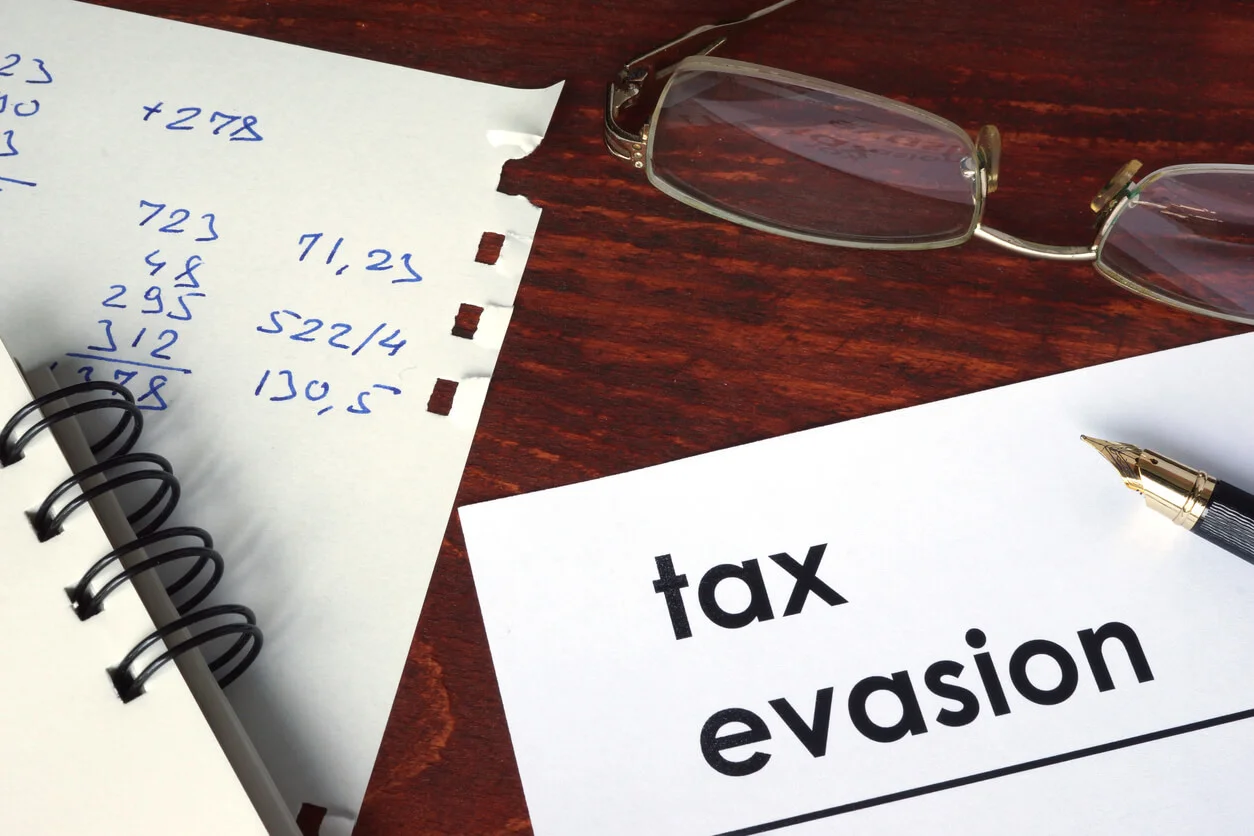What Happens If You’re Accused Of Tax Evasion?

The IRS is no stranger to taxpayers’ avoidance of tax liability. From the rich and famous to a local donut shop owner, many continue to face the serious consequences of tax evasion. It is no secret that no one likes to pay their taxes, but it is a necessary responsibility that must be met in order to avoid trouble with the federal government. Indeed, tax fraud has existed since the inception of the IRS. There are many creative ways individuals and entities attempt to lower their tax liability each year. Most of these actions are legal and acceptable tax avoidance strategies based on tax laws. However, at times, these actions will slip into illegal territory which can result in serious consequences for all involved.
In 2019, less than 0.5% of tax returns resulted in an audit by the IRS. Although the odds of being audited by the IRS are slim, the consequences of an audit is a threat with devastating potential for any individual or business. IRS audits often result in a determination of tax fraud such as tax evasion which could result in possible criminal charges and other penalties such as fines and incarceration.
What Is Tax Evasion?
Tax evasion is one form of tax fraud investigated by the IRS. It is an illegal action or behavior by an individual or entity to intentionally avoid the payment of tax liability. Further, tax evasion is considered a federal offense subject to criminal charges under U.S. tax laws regardless of the amount owed to the IRS. The IRS does not only target large corporations or wealthy individuals for tax fraud. The current systems and procedures in place at the IRS are developed in a manner to flag any tax return, individual, or entity that may be engaging in deceptive practices.
Difference Between Tax Evasion and Negligence
The intent is the critical component to determine whether the underpayment or nonpayment of tax liability was criminal as opposed to negligence. IRS tax code is complex and often difficult for most taxpayers to fully understand. There are a number of situations that result in an underpayment of tax liability including mismanagement of records to unintended omissions. These scenarios would not be automatically considered tax evasion.
Tax evasion can only be proven if the IRS can show evidence that an individual or entity intentionally and willfully acted in a manner to avoid the payment of taxes. Although negligence is not a defense to paying your taxes it is limited to civil penalties as opposed to the criminal classification of tax evasion.
Practices That Can Be Considered Tax Evasion
There are various actions individuals and entities will take when attempting to lower or avoid tax liabilities. While there are a number of legal tax avoidance strategies, there are also a number of practices used by individuals that are immediate red flags to the IRS of tax evasion behaviors.
Common tax evasion practices investigated by the IRS include:
- Refusal to file tax returns for individuals or entities
- Non-payment of tax liability owed to the IRS
- Omission of income sources
- Underreporting of Income
- Fraudulent deductions or expenses
- Multiple sets of accounting records
- Falsification of records
- Misclassification of personal expenses as business expenses
- Concealment of assets
Who Can Be Accused of Tax Evasion?
Any individual or entity can be accused of tax evasion regardless of the amount of income or tax liability owed to the IRS. The IRS will often accuse a person or business with tax evasion only after an audit determines that a taxpayer likely committed acts with the intention to lower or avoid their tax liability.
It is important to note that the IRS does have a statute of limitations with regard to filing criminal charges for tax fraud. Under current law the IRS must generally conduct an audit within 3 years and has up to 6 years to file criminal charges. However, there are a number of exceptions to these rules and the IRS can often seek civil penalties for tax fraud cases indefinitely.
Consequences of Tax Evasion
Tax evasion is a serious offense based on federal law. Under the IRS tax code, tax evasion is classified as a felony which can be punishable by up to 5 years of incarceration; fines of up to $250,000 for individuals or $500,000 for entities; or a combination of jail time and monetary fines. In addition, in most cases of tax evasion, if the party is found guilty they will also be responsible for any and all court costs accrued in the prosecution of the crime.
What Should You Do If You Are Accused of Evading Taxes?
Being accused of tax evasion is a serious matter that must be addressed with urgency and caution. If you have been accused of tax evasion by the IRS you must act quickly. It is advisable that you seek representation by an expert tax law attorney that can guide and represent you through the complex process of dealing with the IRS.

Ideally, you should contact a tax attorney the moment you or your company is notified of an audit by the IRS. Legal representation throughout the audit process can often avoid the possibility of being accused of tax evasion.
The Importance of Knowledgeable & Experienced Representation
Navigating your tax troubles alone can lead to dire consequences putting yourself and your business at risk. It is in your best interest to seek expert legal representation through a law firm that specializes in only in tax law. Our team of trusted and experienced tax law attorneys at Silver Tax Group is prepared to help you through this difficult and overwhelming situation. We understand the complexities and intricacies of the IRS tax code and can help our clients achieve the best possible solution to their pending IRS cases with our expert guidance and representation.
If you are facing an audit or have been accused of tax evasion by the IRS please contact our team at Silver Tax Group for a free consultation regarding your circumstances.





Free Consultation 24/7
Chad Silver
Attorney

Silver Tax Group Locations


777 South Flagler Drive
Suite 800 – West Tower
West Palm Beach FL 33401

4005 Guadalupe St
Suite C
Austin, TX 78751


